In Tonk, Rajasthan, an IAS Officer Is Using AI to Help 350+ Govt Schools Beat Fear Of Maths
As board exams approached, Aman Gujar felt the pressure mounting. While he performed well in most subjects, mathematics remained a persistent challenge. Despite several tests and pre-boards, his scores plateaued at just 55 marks — leaving him anxious and unsure about what lay ahead.
That changed when his school introduced artificial intelligence (AI)-driven learning tools. With structured guidance from the AI, mathematics began to feel less daunting for Aman.
“Earlier, I struggled to grasp complex math concepts, but the AI’s step-by-step solutions made a big difference. I began understanding the subject better and made it a habit to revise regularly after school,” says Aman.
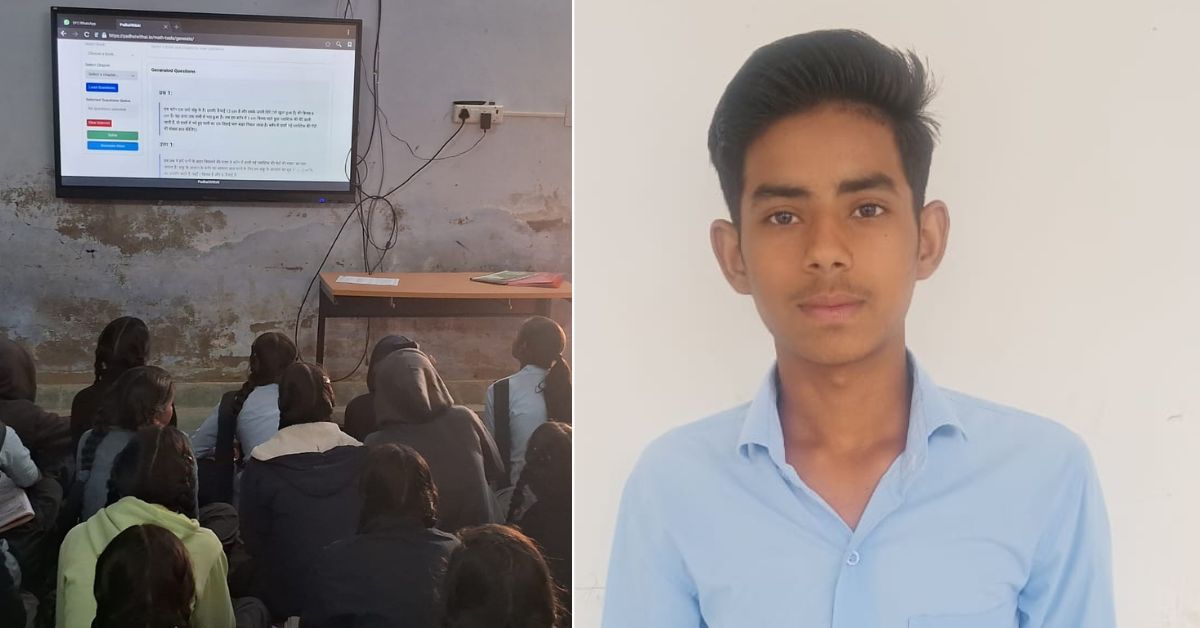 Students like Aman Gujar saw a noticeable improvement in math scores.
Students like Aman Gujar saw a noticeable improvement in math scores.
The programme also incorporated regular tests after each topic, helping students like Aman grasp and revise subjects consistently.
“It helped me turn something that once felt impossible into something manageable. The method made learning fun and engaging, and with AI, studying maths became a lot easier,” adds the 16-year-old.
As he embraced this new approach, Aman’s confidence grew, and so did his marks. When the final board exam results were announced, he was elated. “I was thrilled to have scored 65 marks in maths, a full 10 marks higher than before,” says Aman, who aspires to become a Superintendent of Police in the future.
Aman’s journey from confusion to clarity is just one among many in Tonk, Rajasthan — a district quietly undergoing an educational transformation.
Spearheaded by IAS officer Saumya Jha, the Tonk district administration launched the ‘Padhai with AI’ initiative to transform education in Rajasthan. By blending technology with community support, the programme is making learning more engaging, inclusive, and effective for students.
A new dawn for learning
This innovative approach was born out of Saumya’s observations during her school visits in the district, where she noticed a troubling gap between students’ ambitions and their academic performance.
“I was pleasantly surprised by their responses. Beyond the usual dreams of becoming doctors or teachers, many aspired to work with cutting-edge technology like AI, robotics, and drones. But I noticed a troubling gap — very few were opting for science streams, largely due to low confidence in core subjects like mathematics, which is most aligned with their ambitions,” she points out.
Additionally, Saumya also learnt that teachers often juggle academic duties with election-related responsibilities, which detracts from the consistency and quality of education they can deliver.
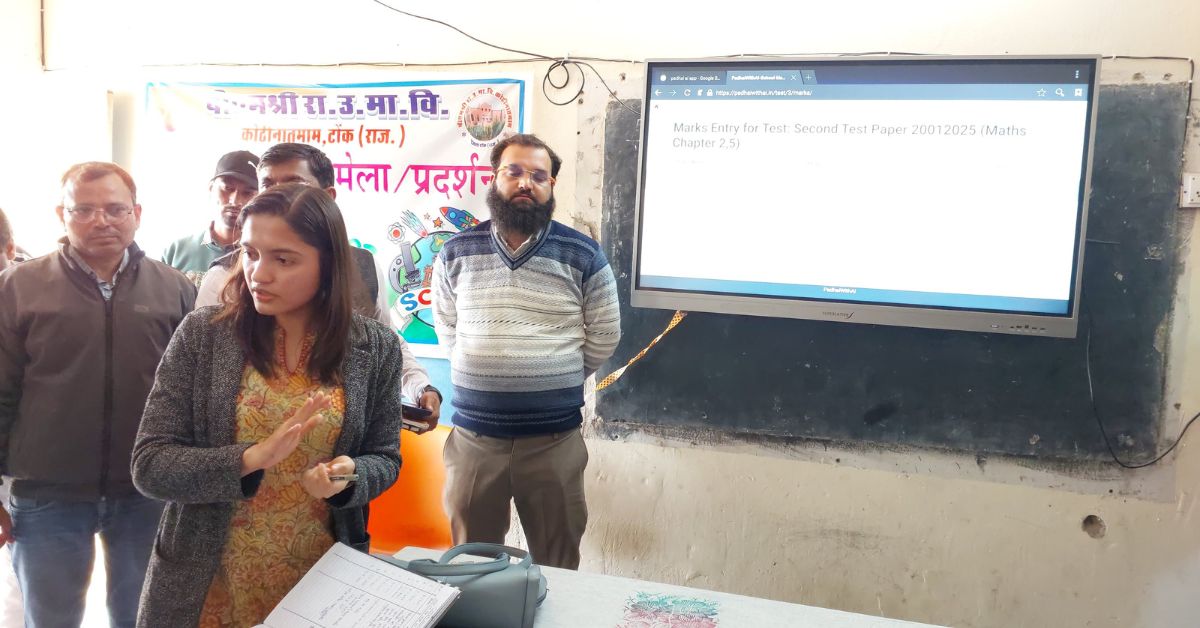 The ‘Padhai with AI’ programme is spearheaded by IAS officer Saumya Jha.
The ‘Padhai with AI’ programme is spearheaded by IAS officer Saumya Jha.
“Compounding this, many families in Tonk, traditionally reliant on agriculture, prioritise farm responsibilities over formal education. This leads to fluctuating school attendance, particularly during the Rabi harvest season. This seasonal exodus from schools significantly impacts students’ continuity in learning. Those months are crucial for students as it is this period when most revision is expected to happen before the annual examination,” shares the IAS officer.
Recognising these multifaceted issues, Saumya launched the innovative ‘Padhai with AI’ initiative last September. This initiative aimed to address educational disparities by leveraging artificial intelligence to enhance learning experiences.
Bridging educational gaps in underserved communities through AI
Saumya, a 2017-batch IAS officer, calls the programme her ‘brainchild’ — an initiative shaped by both personal and professional experiences. During her early days as a UPSC aspirant, she relied heavily on AI for self-learning, which sparked a belief in its potential to democratise education for underserved students.
After being posted as the District Collector of Tonk in January last year, she again turned to AI — this time to quickly grasp a range of topics relevant to her new role. “Instead of going through lengthy manuals, I found it far more efficient to use AI. For example, I asked it to create a course plan for me, which made the learning process much smoother.”
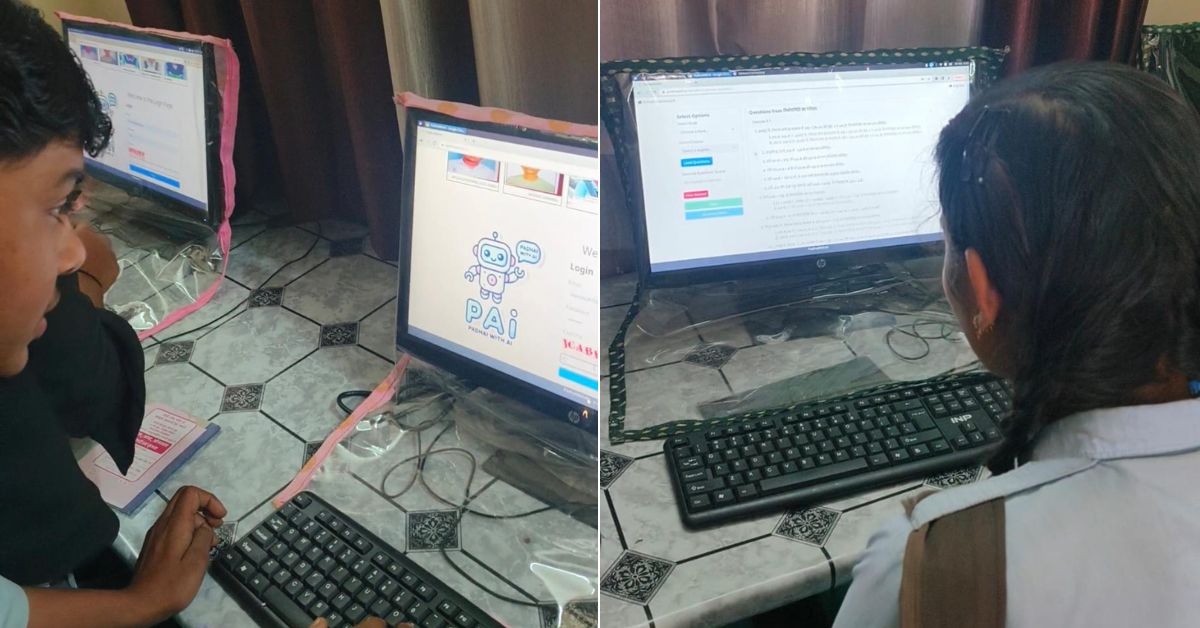 The AI program offers a range of features, including real-time solutions to textbook questions and generation of practice tests.
The AI program offers a range of features, including real-time solutions to textbook questions and generation of practice tests.
That experience, she says, was a turning point. “It made me realise how AI could also empower those without access to quality education. We began exploring how it could help bridge learning gaps in underserved communities.”
From textbooks to tech: How AI became the classroom companion
The cornerstone of the ‘Padhai with AI’ initiative is its ability to make complex subjects both accessible and engaging. Central to this is a bilingual AI tutor that can access all textbook questions and solve selected queries in real time. If students need further clarity, they can simply refresh the page to receive a new explanation from the AI.
Teachers or operators have the flexibility to select any textbook questions, enabling the AI tutor to generate an unlimited number of similar questions. These can be customised in format and difficulty level, facilitating the creation of practice tests for students instantly.
Akshay Thakur, a mathematics teacher at a government school in Ameenpura, believes that the integration of AI into education has significantly benefited both children and teachers.
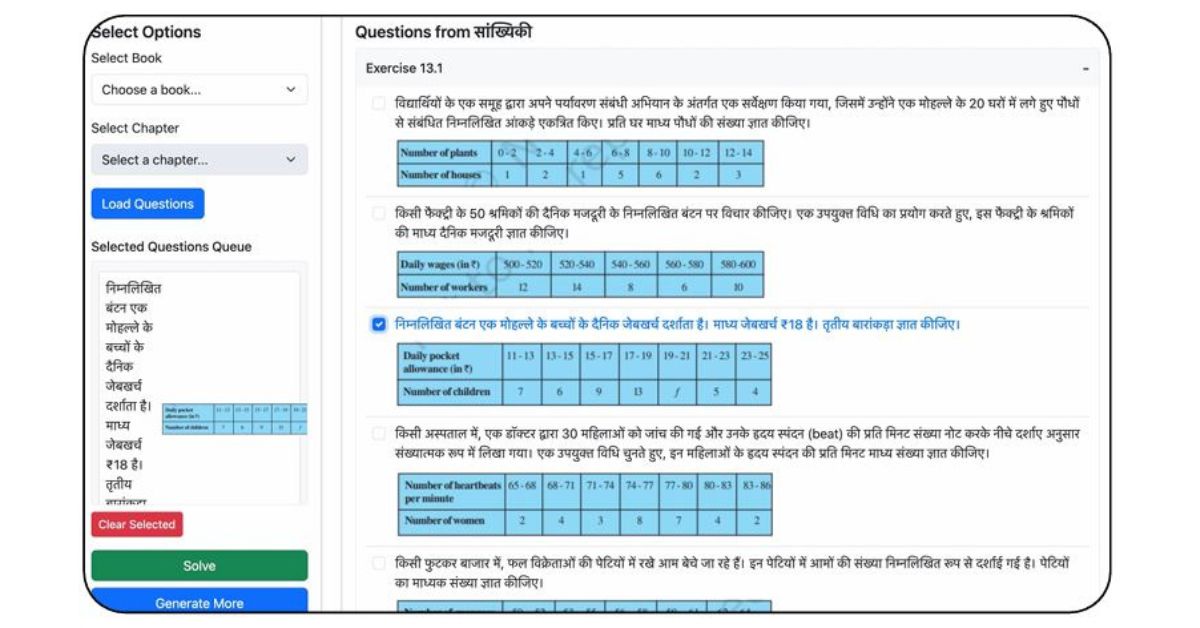 Using the AI portal, students can access unlimited practice problems while teachers can generate unlimited customised tests with a single click.
Using the AI portal, students can access unlimited practice problems while teachers can generate unlimited customised tests with a single click.
“Our standard textbooks lack objective-type questions like fill-in-the-blanks, true/false, and short or very short answers — even though these formats often appear in actual exams. By leveraging AI, we’re now able to generate such questions and distribute printouts to help students get familiar with the exam pattern,” he shares.
“Math often instils fear in children, and when results are announced, it feels like a personal test for me too,” he smiles. “I was especially worried that a few students might not clear their board exams. Thankfully, they passed with commendable marks.”
Moreover, the AI system generates practice tests that are tailored to the students’ current performance levels. “If a student struggles with a particular topic, the AI offers additional practice problems of similar difficulty, ensuring they master the material before moving on. This personalised approach ensures that each student progresses according to their capability,” says Saumya.
Initiated in September 2024, its version 2, introduced in January 2025, came with extensive features like standardised teaching calendars, weekly tests, and advanced analytics. Saumya uses the AI portal to highlight top-performing students in a bid to motivate other students. Currently, the AI-based education is being provided to all 353 government senior secondary schools.
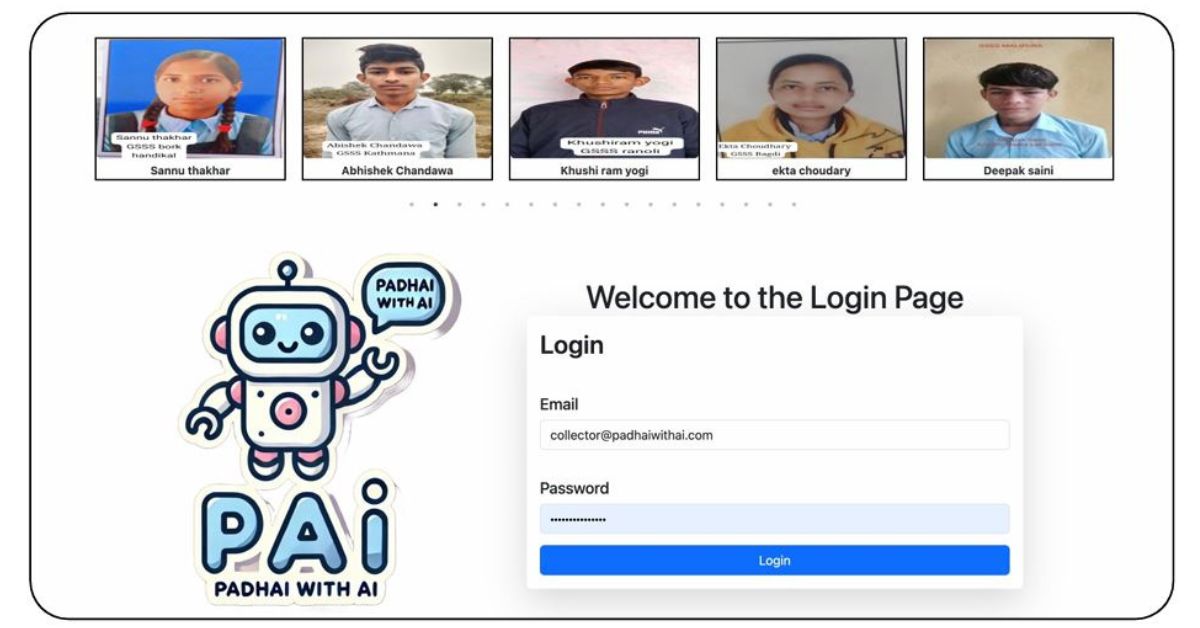 The launch of the ‘Padhai With AI’ portal played a crucial role in improving the marks of students.
The launch of the ‘Padhai With AI’ portal played a crucial role in improving the marks of students.
Tonk’s AI-driven educational breakthrough
In the 2025 board exams, Tonk district demonstrated remarkable progress, surpassing both state averages and its past performances. A significant 96.4 percent of students in Tonk passed in Math, reflecting a three percent increase from 2024. Notably, the proportion of high-achieving students, scoring first division or higher, surged from a stagnant 23 percent in 2024 to 28.23 percent in 2025.
In contrast, the average state results exhibited only a slight improvement in passing rates. This year, the state’s pass rate was 93 percent, a mere one percent improvement, whereas Tonk outdistanced the state with a 95 percent pass rate, showing an improvement of three percent.
The launch of the ‘Padhai with AI’ portal played a crucial role in this turnaround. Despite operating for just six weeks, it substantially contributed to these impressive outcomes in Tonk’s board results.
“Students have reported increased confidence in handling complex problems, and the data supports these assertions,” mentions the District Collector, who aims to extend the AI-enhanced learning modules to subjects like English and Science.
Images courtesy District Administration, Tonk
News